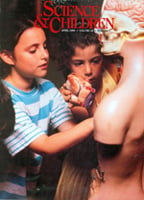Mary has not updated the personal profile information on this page. Please contact Mary and make this suggestion!
Have you updated your profile?
Become part of the NSTA professional learning community, sharing digital resources, ideas, and classroom strategies, and connect and learn about those with whom you are collaborating!
Updating your profile is easy to do and allows others to learn more about you as part of the NSTA community, just click the "My Profile" link located at top of this page and begin entering your information. This professional profile space serves as the destination where you can find your NSTA certificates, NSTA conference transcripts, online activity log, total activity points, and the NSTA badges that you have earned for your online work. We encourage you to add your photo or image and to update your "Notification Preferences" for community forums discussions.
- Public Collections
-
No Public Collections
- Forum Posts
-
No Posts
- Reviews
-
Recent Reviews by Mary

How Do You Know That Science is Going On? Questioning the criteria that determine whether science is taking place
Fri, May 01, 2015 12:14 AM
 Relating Learning Science Criteria with TEKS
Relating Learning Science Criteria with TEKS
In this article, the author addresses her concerns with the amount of actual science that is being taught in schools. She acknowledges the difficulty in determining the criteria used to judge whether the teaching of science is actually occurring in the classroom. In Texas public schools, teachers use the Texas Essential Knowledge and Skills (TEKS) to develop lesson plans. The TEKS state the knowledge and skills that students should acquire by the end of a specific school year.
Several of the criteria developed in the article for determining whether students are learning science align well with the kindergarten through fifth grade TEKS. One of the author’s criteria includes discussion of scientists’ work and activities. The TEKS build on each other from kindergarten through fifth grade and allow students to learn what a scientist is, learn what different types of scientists do, investigate what scientists have studied, and learn how the science they study connects to the history and careers of science and scientists’ contributions.
Two other criteria include students developing their explanations and comparing them to scientists’ explanations and determining whether to agree with the scientists’ explanations. The TEKS require students to explain and defend their observations and results to others and to what scientists have discovered about the world. In the upper elementary grades, students critique and analyze scientific explanations.
The three additional criteria are not directly addressed in the TEKS, but could be easily incorporated into discussions about the science community and with the participants of the scientific community.
http://ritter.tea.state.tx.us/rules/tac/chapter112/ch112a.html
View all reviews by Mary